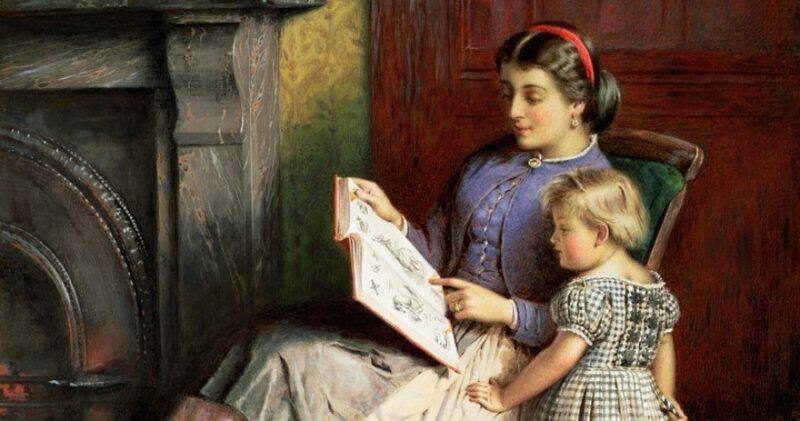Why do we love quotations? We share them on Instagram, stick them up on our fridges, hang them over our kitchen sinks, offer them to friends in need, and if you’re like me, collect them in a book. My passion for quotations began when I was a teenager. My mother had a bulletin board above our wall phone and a pushpin held a scrap of paper with a line I read over and over again while talking to my friends—in those days phones weren’t portable, and I was on the phone a lot.
Article continues after advertisement
“In dreams begin responsibilities.” I didn’t it know at the time, but it isn’t technically a quotation; it’s the title of a short story by Delmore Schwartz. And it isn’t originally Schwartz’s line; he took it from the epigraph to W.B. Yeats’s Responsibilities and Other Poems that Yeats attributed to “an Old Play.”
To me, the words were true and provocative, and as I stared at them during my phone sessions they got deeper and more complicated. Was this a hopeful line? Was it sad? Was it practical? Was it the answer to how to live my life? I read Schwartz. I read Yeats. I was hooked.
When I read books, I underline. When I read e-books, I highlight. Still, I like to print out some lines and tuck them away in a special folder. I turn to that folder when I need inspiration for a speech or for writing a thank-you note or for when I’m down in the dumps. They give me solace. Sometimes they motivate me. Sometimes they solve a problem. Sometimes they simply make me happy that such beautiful language exists in this world.
When my son, Nick, was born and I started reading books aloud to him, my folder grew and grew. Some books I had a hard time reading as many times as he insisted. (Please, Mom, again, again!) But other books were a complete pleasure to reread, because their words were poetry and their wisdom was ageless. My first collection of children’s quotations for adults, What the Dormouse Said, published 25 years ago, came out of the books Nick and I read together. I used an epigraph from I.B. Singer’s Stories for Children: “Children… are highly serious people… We write not only for children but also for their parents. They, too, are serious children.”
Adults have plenty to learn—or re-learn—from children’s books, which offer universal virtues that apply to old and young. Since my first volume was published, there has been an explosion of thrilling new books for kids from a growing diversity of creators who have given us new wisdom and new insights into what it means to be human. Believe In the World: Wisdom for Grown-Ups from Children’s Books, which Elise Howard and I collected, reflects these new voices. I love Angie Thomas’s line from The Hate U Give: “What’s the point of having a voice if you’re gonna be silent in those moments you shouldn’t be?” In El Deafo, Cece Bell gives us this important reminder: “Our differences are our superpowers.” Whenever I’m afraid of trying something new, I think about Nicola Yoon’s words in Instructions for Dancing: “Not everybody can dance good, but everybody can dance.”
We also included plenty of classics whose lessons remain vital. One of my favorite books of all time is The Little Prince. In it, Antoine de Saint-Exupéry writes: “What makes the desert beautiful is that it hides a well somewhere.” And who can deny these very wise words from the enduring and indomitable Beverly Cleary: “A girl shouldn’t hold a baked stuffed onion against a boy forever.”
Reading and rereading all these wonderful books helped us recapture a little of the childlike wonder and joy that sometimes, after a busy day doing grown-up things, we tend to forget. But we had a sneakier ambition, too: By bringing together a wide range of authors in one volume, we hoped to remind adults, living in the most polarized era most of us have ever experienced, that we still share many common values. Can we all agree that being courageous, speaking out against wrongs, valuing our individuality as well as our differences, being kind, doing good deeds, respecting other points of view, and maybe even being silly once in a while are virtues worth upholding? These are the lessons we learned as readers of children’s books.
As this November election looms, I think about The Voting Booth by Brandy Colbert, who writes that change requires “a willingness to listen to people we may not understand.” I have to admit that this is often hard for me, but I’m trying. I know one thing for sure: books help. “Story magic is powerful, powerful enough to change someone,” as Tae Keller writes in When You Trap a Tiger.
Great children’s books remind us of how we—children and adults—are connected. For deep down, aren’t we all looking for ways to deal with the dark? Aren’t we all afraid our loved ones will be taken from us? Aren’t we all searching for a safe place called home?
“In dreams begin responsibilities.” I’m dreaming of a world right now where we remember what unites us, where we think about the values that we want to instill in our children. And then we take responsibility for making it real.
__________________________________________
Believe in the World: Wisdom For Grown-Ups from Children’s Books, edited by Amy Gash and Elise Howard and illustrated by Eleanor Davis is available via Algonquin Books.

